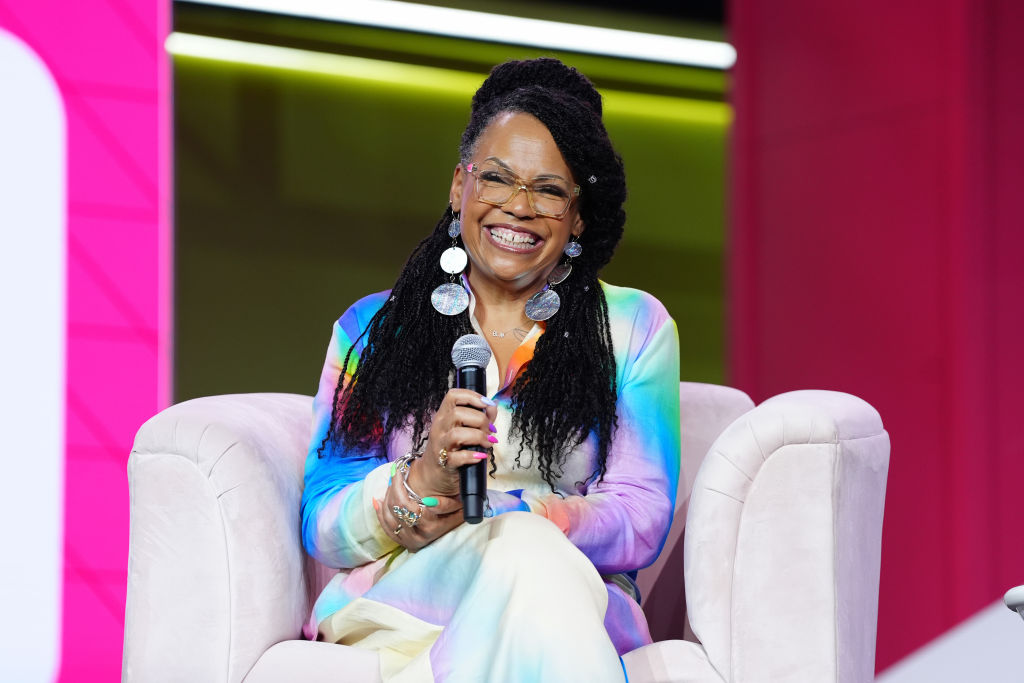When Hailey Bieber’s beauty brand, Rhode, was reportedly acquired by e.l.f. Beauty for a whopping $1 billion, the internet lit up. Some applauded the young mogul’s billion-dollar exit while others dissected what it meant for beauty industry valuations. But it wasn’t long before Necole Kane, the media maven behind xoNecole and founder of wellness brand My Happy Flo, posed a question that hit different for Black women entrepreneurs: What happens when Black entrepreneurs “secure the bag”?
When white founders sell their companies, it’s celebrated as success, according to Kane. When Black founders do the same, they’re often labeled sellouts, their brands are boycotted and their legacy is questioned. It’s a pattern that’s holding the Black community back.
Why Do We Hold Black-Owned Brands to a Different Standard?
To understand the double standard, look no further than Mielle Organics. Founded by Monique Rodriguez, Mielle was a staple in many of Black hair routines. But after the brand was acquired by Procter & Gamble in 2023, social media was ablaze with complaints that formulas had changed and the products no longer worked the same.
Rodriguez assured her loyal base that she remained involved in product development and that no changes were made to formulas. Still, the backlash persisted, fueled in part by a deep-rooted mistrust of large corporations and a community-wide expectation that Black-owned brands stay independent for the culture.
This isn’t the first time. The Honey Pot, another Black woman-led brand, faced similar accusations after expanding. The sentiment has been echoed by leaders like Morgan DeBaun, CEO of Blavity.
“We have literally no grace for them,” she said. “Stuff happens in business, especially when you’re growing quickly.”
The pressure to remain “authentic” often outweighs the reality of business growth and financial security.
The truth is, Black entrepreneurs face far more barriers than their counterparts, from access to funding to mentorship to mainstream distribution. So, when they do break through and choose to scale or sell, why can’t it be seen as the win it is?
Black Founders Who Secured the Bag (And Still Serve the Culture)
Monique Rodriguez – Mielle Organics (Acquired by Procter & Gamble)
Rodriguez turned her kitchen-formulated haircare into a powerhouse brand in less than a decade. Despite skepticism after its P&G acquisition, Mielle continues to expand globally. Rodriguez remains involved, proving that selling doesn’t mean disappearing.
Richelieu Dennis – Sundial Brands (SheaMoisture, Acquired by Unilever)
When Dennis sold Sundial Brands to Unilever in 2017, many questioned whether SheaMoisture could stay true to its roots. But Dennis didn’t just cash out, he negotiated a $100 million New Voices Fund to invest in Black women entrepreneurs.
Tristan Walker – Bevel/Walker & Company (Acquired by Procter & Gamble)
Tristan Walker built Bevel with one goal: address the unique grooming needs of Black men. After P&G acquired the company in 2018, Walker became the first Black CEO under the P&G umbrella.
Lisa Price – Carol’s Daughter (Acquired by L’Oréal USA)
A pioneer in Black haircare, Price sold her beloved brand to L’Oréal in 2014. Many fans were initially disappointed, but the acquisition helped Carol’s Daughter reach major retailers like Target and Walmart, keeping it accessible and visible to more Black households.
Melissa Butler – The Lip Bar (Partial Stake Sold, Still Black-Owned)
While The Lip Bar hasn’t been fully acquired, Butler raised millions and landed national retail deals — including a high-profile investment from none other than billionaire Richelieu Dennis. She proves you can scale and stay in the driver’s seat.
Is Selling Out Actually a Myth?
For many in the Black community, buying Black is more than a trend, it’s a form of activism, an intentional push to close the racial wealth gap. That’s valid. But the belief that success must come with staying 100% Black-owned forever can be a trap.
Dana Roberts, co-founder of RedDrop, said it best in a Threads post.
“As Black founders, we should have the luxury to scale and sell if we desire, with no burden of expectation that we must keep it for the ‘culture,'” she said.
Securing the bag can be for the culture if the founders maintain ownership stakes, reinvest in their communities, or use their wins to open doors for others. It doesn’t have to be all or nothing.
Yes, Black-owned brands should be held accountable. If a product causes damage, we deserve answers. But there’s a difference between feedback and a takedown. If the culture cancels every founder who dares to grow, what message is being sent to the next generation?
It’s time to normalize Black excellence without the asterisk.
